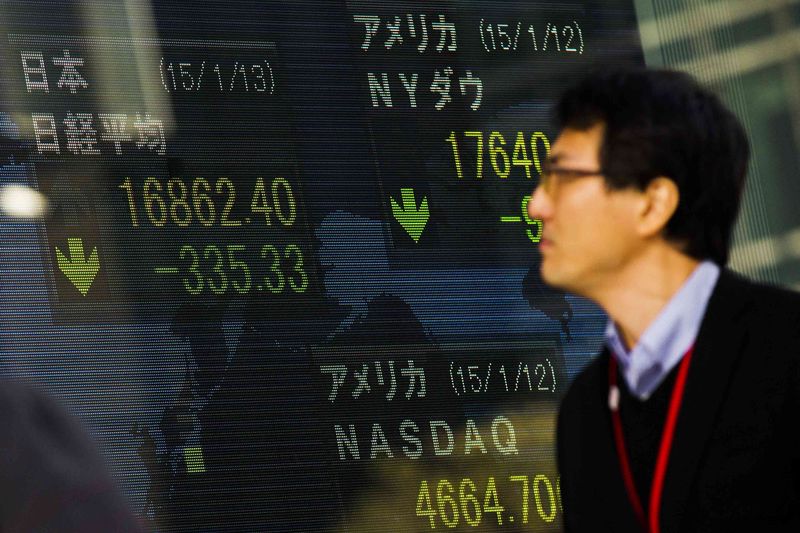Investing.com - Asian markets resumed slide on Wednesday in Asia as traders become increasingly concerned there might be no trade deal between the U.S. and China by Friday as previously expected.
China’s Shanghai Composite and the Shenzhen Component slipped 0.5% and 0.1% respectively by 10:30 PM ET (02:30 GMT). Hong Kong’s Hang Seng Index was down 0.8%.
Japan’s Nikkei slumped 1.5%, while South Korea’s KOSPI dropped 0.1%.
Down under, Australia’s ASX 200 declined 0.4%.
News on the Sino-U.S. trade front continued to dominate headlines today. Chinese Vice Premier Liu He is travelling to Washington to resume trade negotiations with the U.S. on Thursday and Friday, according to a statement on the Chinese Ministry of Commerce website. U.S. Trade Representative Robert Lighthizer and Treasury Secretary Steven Mnuchin will attend the talks.
Citing people familiar with the matter, Bloomberg said China is considering retaliatory tariffs on U.S. imports if U.S. President Donald Trump follows through with his threat to increase tariffs on $200 billion worth of Chinese goods.
Some analysts previously expected the two sides could sign a trade deal as soon as this Friday, but hopes of that happening were cast into doubt after Trump surprised Chinese officials by saying he planned to raise the tariff on Chinese goods from the current 10% to 25% because talks were “moving too slowly.”
Officials from the U.S. also blamed China for backtracking on committing to certain legal changes that are keys to selling the deal domestically, Bloomberg reported citing sources with knowledge to the matter.
In an interview with Bloomberg, IMF chief Christine Lagarde said she thought the U.S. and China were close to an agreement. “We hope that is still the case but today rumors, tweets and comments are not very favorable,” she said.
“The tariff war is not in China’s interest but it’s also not in U.S.’s interest. So the sooner the two governments put the trade war behind us, the better,” Victor Gao of the Center for China and Globalization told CNBC in an interview.
“China needs an agreement with the United States, and I think the United States also needs an agreement with China. Uncertainty, unpredictability and the prospect of greater turmoil will be a killer for both countries.”
